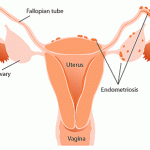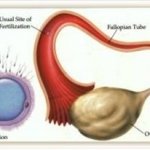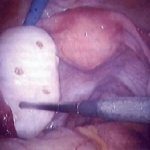Articles in the Featured Category
Featured, Infertility causes, Surgical Infertility »

This term denotes anatomic causes of female infertility that lend themselves to surgical repair. With the ascent of IVF (in-vitro fertilization), fewer indications for surgical infertility exist today than a decade ago. Nevertheless, there are still many occasions where competent surgery can make a difference. Examples are myomectomies (the surgical removal of fibroid tumors from the uterus), ovarian cystectomies (the surgical resection of ovarian cysts), tuboplasticies (the surgical correction of abnormal fallopian tubes) and many other procedures.
Surgical Treatment of Infertility
Infertility can be caused by problems in the pelvic anatomy – …
Featured, Ovulatory Dysfunction, Surgical Infertility »

Endometriosis is a medical condition in women in which endometrial cells are deposited in areas outside the uterine cavity. The uterine cavity is lined by endometrial cells, which are under the influence of female hormones. Endometrial cells deposited in areas outside the uterus (endometriosis) continue to be influenced by these hormonal changes and respond similarly as do those cells found inside the uterus. Symptoms often exacerbate in time with the menstrual cycle.
Endometriosis is typically seen during the reproductive years; it has been estimated that it occurs in roughly 5% to …
Featured, Infertility causes, Tubal Infertility »

Tubal factor infertility accounts for about 20-25% of all cases of infertility. This category includes cases in which the woman has completely blocked fallopian tubes and also women who have either one blocked tube or tubal scarring or other tubal damage. Most tubal disease is caused by an episode of tubal infections (pelvic inflammatory disease, PID) or a condition called endometriosis.
In cases of relatively minor tubal damage it can be difficult to be certain that the infertility problem is solely due to the tubal damage. …
Featured, Infertility causes, Ovulatory Dysfunction »

Ovulatory dysfunction is abnormal, irregular, or absent ovulation. Menses are often irregular or absent. Diagnosis is often possible by history or can be confirmed by measurement of hormone levels or serial pelvic ultrasonography. Treatment is usually induction of ovulation with clomiphene or other drugs.
Symptoms and Signs
Ovulatory dysfunction is suspected if menses are absent, irregular, or not preceded by symptoms, such as breast tenderness, lower abdominal bloating, or moodiness.
Ovulatory Dysfunction Overview
Ovulatory problems account for 20 to 30% of infertility cases.
A normal adult women ovulates every 25 to 32 days. Ovulation …